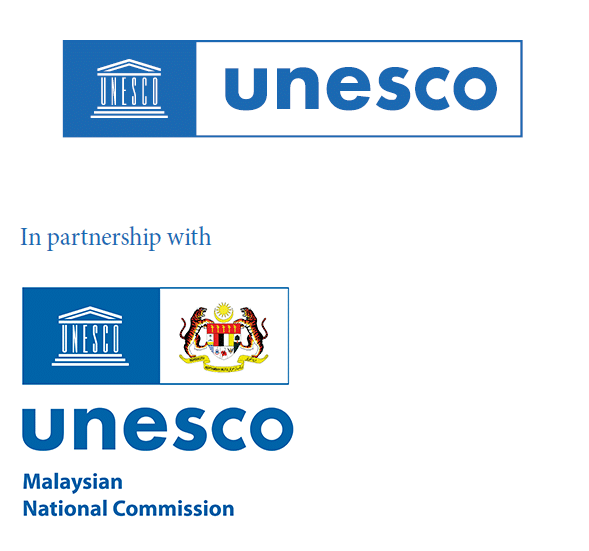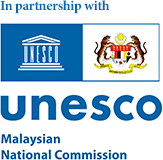The Members of the Malaysia – UNESCO Cooperation Programme (MUCP) Steering Committee has convened in Jakarta, Indonesia for the Seventh MUCP Steering Committee Meeting. Hosted at the office of the Regional Science Bureau for Asia and the Pacific of UNESCO (UNESCO Jakarta), the meeting has gathered representatives from the Government of Malaysia, UNESCO Jakarta, UNESCO Regional Bureau for in Asia-Pacific (UNESCO Bangkok) as well as representative from the Bilateral Government Funding Source Division (BSP), UNESCO Headquarter in Paris. The meeting that takes place from 18-19 December 2018 was chaired by the newly appointed Secretary-General of the Malaysian National Commission for UNESCO (NATCOM), Dr Noraisah Spahat.
Co-chairing the Meeting was Professor Dr Shahbaz Khan, Director of UNESCO Jakarta and focal point for the MUCP Programme. The composition of the Steering Committee also includes Ms, Jun Morohashi, Head of Executive Office/Regional Programme Coordinator, UNESCO Bangkok and Mr. Salvatore Mineo, Program Specialist for BSP. Malaysian Natcom was also represented by Mrs. Roslinda Mat Musa (Programme Officer for External Relations) while colleagues from the field outside of Jakarta were connected via Skype teleconference.
The meeting reviewed the status of current and newly finished projects as well as the five up scaled projects involving new African Member States. Dr Noraisah has expressed the interest of the Government of Malaysian on the execution of the up scaled projects. “We would like to see more impactful collaborations for the rest of the months, particularly on (the) five up scaled projects,” said Dr Noraisah, as she thanked UNESCO in the implementation of these projects.
The Meeting also focused on the way forward of the MUCP programme and the synthesis of it. The Steering Committee has agreed that the MUCP programme should be extended until the end of 2019, to conduct several proposed synthesis exercises and to give appropriate duration of time for the Final External Evaluation to be implemented. Professor Dr. Shahbaz stated that the MUCP programme has successfully been collaborating with 20 Malaysian professional institutions and involves 70 countries worldwide. He continued that the next step would be to harvest all the knowledge, best practices and data from all the implemented projects. “We need to see how these benefits can be up scaled further,” said Professor Dr Shahbaz.
The Steering Committee also agreed on exploring the possibilities of collaborating with private sectors for the future modality of funds-in-trusts.”… We need to verify how we can also coordinate amongst us a different kind of funding opportunities,” stressed Ms. Morohashi. Mr. Mineo also reiterated that private sectors could play a pivotal role in supporting inclusive and progressive policy, which will benefit the economy. “It’s not philanthropy anymore (but) it’s an investment by private sectors in development,” said Mr. Mineo. The Malaysian Government has agreed to facilitate UNESCO concerning the strategic partnership with Malaysian Private Sectors.
The current MUCP up scaled projects concentrates on empowering the capacity to achieve SDG 4, upscaling of water security, strengthening the capacity building for disaster-risk reduction in World Heritage Sites, promoting policy development and planning based on research evidence as well as building journalism’s capacity in developing countries on climate change.
#mucp #malaysia #unesco #SSC #Africa #AsiaPacific #SIDS #LDCs #SDGs




